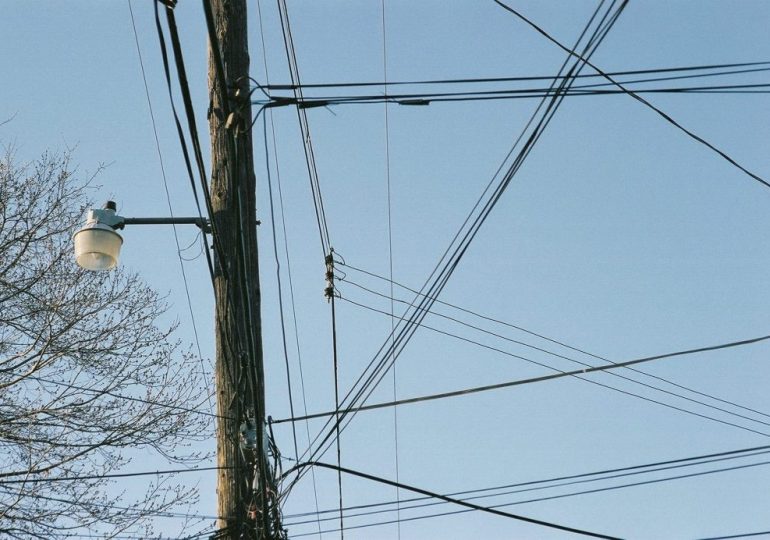A coalition of energy equity and justice advocates says Minnesota regulators should consider reinstating a utility shutoff moratorium after a recent academic study revealed racial disparities in disconnections by the state’s largest utility.
Xcel Energy customers in communities of color were more than three times as likely to have their electricity involuntarily disconnected between 2017 and 2021 compared to those in predominantly White neighborhoods, according to the analysis by the University of Minnesota’s Center for Science, Technology and Environmental Policy.
Those racial disparities persisted even after researchers controlled for other factors such as income, ownership status and housing age.
“We still find consistently that homes that are disconnected are predominantly” in communities of color, said Bhavin Pradhan, a postdoctoral associate and study co-author.
The study’s findings are at at the center of recent comments filed by advocacy groups including the Cooperative Energy Futures, Environmental Law & Policy Center, Sierra Club, and Vote Solar, which asked the Minnesota Public Utilities Commission last month to order a study of the costs and benefits of reinstating the state’s pandemic-era moratorium on utility shutoffs.
“(We) recommend that the Commission order this study now and then rely on it to inform Commission action to consider a moratorium on disconnections until Xcel can develop a more robust set of measures to eliminate racial disparities in disconnections,” the groups wrote in April 12 reply comments (MN 23-452).
Xcel Energy, which had already hired a consultant to review the issues raised in the study, in a March 22 response attributed the racial disparities to “deeply entrenched economic and social reasons that are not driven by the energy system,” including the age of housing stock. It suggested targeting energy efficiency programs at low-income neighborhoods as part of the solution.
The study
The study by Pradhan and Associate Professor Gabriel Chan looked at utility shutoffs, power outages, and the grid’s capacity for distributed energy by Census block across Xcel Energy’s Minnesota service territory. It also relied on data from the Council on Environmental Quality’s Climate and Economic Justice Screening Tool, which maps disadvantaged communities as defined by federal law.
Xcel’s interactive service quality map allowed researchers to overlay various data at a granular level. “We could link this (data) with a lot of other variables,” Chan said.
In addition to utility shutoffs, the researchers found disparities in reliability, with communities of color almost 50% more likely to experience prolonged power outages than predominantly White areas.
“Across a battery of regression models, we find that living in poorer neighborhoods with a greater concentration of people of color is associated with a statistically and practically significant difference in the likelihood of disconnection from service due to nonpayment and the experience of extended power outages,” the report concludes.
Chan said the research does not necessarily suggest grid planners were intentionally racist. “But we do think that there’s a real opportunity here to think about how to affirmatively plan the distribution grid to address racial disparities that are caused by many other racialized systems.”
The research echoes inequities that have been found for everything from air quality and bike lanes to infant mortality and drownings, in which gaps similarly persist even after controlling for poverty.
“It would be almost surprising if there weren’t racial disparities” in utility service, Chan said.
Will Kenworthy, Midwest regulatory director for Vote Solar, said the type of racial disparities identified in the study are not unique to Minnesota.
“What we’re finding in Xcel service territory for reliability is consistent with what we’re seeing in Michigan and Illinois to varying degrees,” Kenworthy said.
The paper’s conclusion says the findings don’t necessarily imply deliberate racial bias but do highlight an “urgent need for policy interventions to protect low-income customers from disconnections, invest in marginalized communities, and equitably expand distributed energy resources such as solar and batteries.”
How to address disparities
The energy equity and justice advocates, intervening as Grid Equity Commenters, attached the study with comments submitted in March as part of an Xcel Energy integrated resource planning docket. They argued that the disparities, and equity in general, needs to be part of any discussion about the utility’s system planning.
“Racial disparities in shutoffs have been repeatedly shown and the commission needs to do something about it,” said Erica S. McConnell, staff attorney for the Environmental Law & Policy Center.
Minnesota had a moratorium on utility shutoffs during the Covid-19 pandemic from early 2020 through August 2021. In addition to a study looking at the implications of reinstating that moratorium until racial disparities have been eliminated, the groups’ recommendations include proactive investments in grid reliability and distributed energy in disadvantaged areas.
Fresh Energy, a nonprofit policy advocacy group that also publishes the Energy News Network, separately filed comments on April 12 recommending that the commission require Xcel to track and report additional data regarding shutoffs and reliability in disadvantaged areas.
Fresh Energy staff, board members and funders do not have access to or oversight of the Energy News Network’s editorial process. More about our relationship with Fresh Energy can be found in our code of ethics.
Utility shutoffs and outages can be scary, costly and “dramatic” for lower-income customers, said George Shardlow, executive director of the Energy CENTs Coalition, which works with Xcel Energy to help connect customers with energy assistance and conservation programs. Energy CENTs is not among the groups intervening in the Xcel planning docket.
Shardlow said targeting all customers in areas of high poverty with assistance programs, even for a limited time, could help reduce disconnections and energy burdens. That approach is in line with a proposed Xcel pilot program to offer automatic bill credits to all customers living within targeted, low-income areas where energy burdens exceed 4% of household incomes.
Xcel’s response
Xcel Energy’s comments framed the disconnection disparities as an issue of poverty. It says it has improved its efforts to avoid disconnections, contacting customers via phone and email for nine weeks to help connect them with assistance programs and offer long-term payment plans before shutting off service.
The company said its own analysis did not find a strong relationship between long-duration outages and the racial composition of the neighborhood. The frequency of long outages is so small, affecting less than 5% of households, and largely reflect the random paths of storms, it said.
“We recognize that even if the likelihood of extended or multiple outages remains small, the impacts of an electrical outage could be greater in disadvantaged neighborhoods that are disproportionately vulnerable to such emergencies,” the company said.
While equity and environmental justice are priorities for the company, Xcel said, it also pushed back on the discussions’ inclusion in the integrated resource planning docket, arguing that would duplicate conversations already happening elsewhere.
A silver lining in the study
One surprising finding in the study could also point to potential solutions. In parts of Xcel’s territory, interconnecting distributed energy resources such as solar or batteries has become challenging due to congestion.
“This doesn’t look like an issue for low-income” areas, Pradhan said. “That’s a good point for energy poverty and energy equity” as solar installations could help reduce utility bills and stabilize the grid to reduce outages.
Minnesota Public Utilities Commission staff has tentatively scheduled a meeting to discuss Xcel Energy’s equity analysis with stakeholders in July.
Minnesota advocates push for pause on utility shutoffs after study reveals racial disparities is an article from Energy News Network, a nonprofit news service covering the clean energy transition. If you would like to support us please make a donation.
Leave a comment




